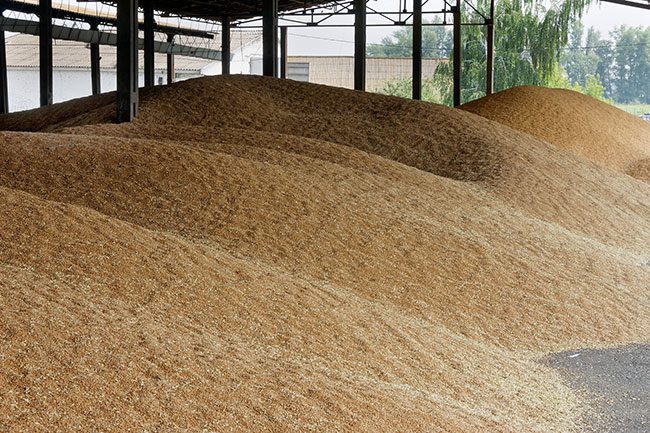Custom Made Independent Brewer Grain Silos

A brewer grain silo saves you energy, time and money. It also helps you manage large volumes of grain better all year round. A brewer grain silo offers an environmentally friendly solution; it allows you to store wet brewer grains instead of discarding them into the environment.
Other advantages of using brewer grain silos include:
- • They occupy minimal ground space; you can build vertical silos that provide additional storage space through stacking
- • Silos protect your grain from pilferage
- • Silos provide you with spacious and highly conspicuous advertising space. you can engrave your brewer’s logo on the silo or lease out the space to an advertising agency in your area
Typical Design
Most brewers use cylindrical brain silos made from mild steel. There are three types of brewer grain silos namely:
- • Welded Silos – They undergo assembly in the factory or on-site. They come with an airtight sealing system to prevent exposing the grain to moisture.
- • Corrugated bolted silos – They also undergo on-site assembly and often occupy minimal space. You can even fit it in a room that is difficult to access. However, corrugated silos require extensive efforts to safeguard their interiors from moisture and dust.
- • Smooth wall silos – They come in two varieties:
- – Smooth wall silos with legs that have hopper bottoms
- – Smooth wall silos with supporting wall extending to the ground
Depending on your preferences, your silo manufacturing company can fit it with several accessories, such as fans, aeration systems, dryers, discharging systems, unloading augers as well as interior and exterior ladders.
Another common feature in brewer grain silos is their upright (vertical) position. You may also find some of them with round railings to enhance easier entry or exit into the silo. The cross section is often square or round-shaped depending on the preferences of the brewer.
Importance of Customized Independent Silos
A one-size-fits-all approach will not enable you identify the most suitable silo for your brewery’s needs. There are several issues to consider and analyze.
Silo Size Considerations
The first thing to consider is size; you must choose a grain silo that can handle your brewer’s needs.
There are steps you can take to determine your silos custom size:
- • Estimate the amount of malt/dry grains you need on a monthly basis
- • Ask your suppliers the minimum and maximum volume of malt/dry grain they can deliver to your brewer on a monthly basis
Compare the figure and work with the average. To avoid a storage crisis, add a week’s worth of malt/dry grain to the minimum volume; this figure should guide you into customizing a silo to meet your immediate and future needs.
The Ideal Location
Another important issue that will influence the design of your brewer grain silo is its potential location. Enlist the services of an engineer to design the pad, which will hold the silo. Your silo manufacturer will work with the design and size of the pad to customize a brewer grain silo that can withstand wind loads, heat, frost and seismic loads, among others. The location of the silo will also influence the type of construction materials the manufacturer uses.
Immediate and Future Storage Needs
A custom-made independent brewer grain silo must meet your unique needs. For example, you must decide whether you need to store dry grains or spent grains. The type of grain will guide the manufacturer into making a silo that serves your needs. Spent grains – also known as wet brewers grain – contain a lot of water, and spoil fast due to bacteria, fungi and yeast growth.
The storage requirements for spent grains will thus differ from those of dry grains. Proper wet grain storage needs a silo that prevents or slows down the growth of bacteria and mold. Considering that beer production runs 24 hours a day, your silo manufacturer has to customize the silo’s storage capacity to accommodate the multiple loads of spent grain. Equally important are special dispensing devices, including metering screws and pumps, which will separate the wet brewer grains from the extracted sugars. You will also need to winterize your silo regularly to prevent it from freezing due to the moisture in the grains.
Conclusion
Due to the different activities characterizing the brewing process, it is easy to overlook the importance of proper storage for your dry and spent grains. Storing your grains in 55 lbs sacks may save on short-term storage costs. However, buying and storing grain in bulk saves you more money in the long run. Bulk storage needs intensive and strategic investment in the right storage units. Brewer grain silos offer an environmental-friendly, cost effective and time saving solution for your brewer’s long-term storage needs. A silo specialist can guide you in selecting a grain silo customized to your specific needs. Contact Swanton Welding to get the best expertise and service to meet your needs.

